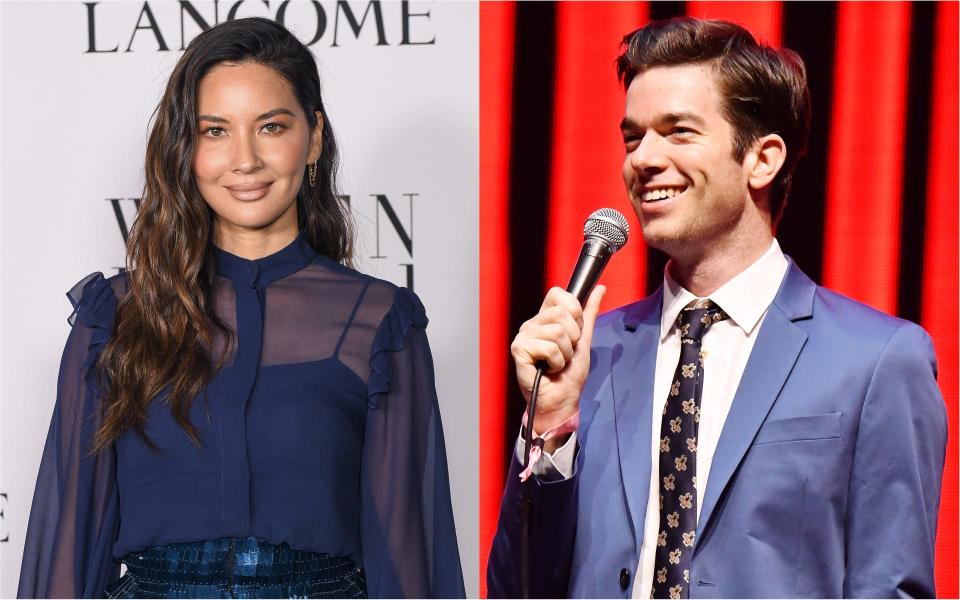Twitter is buzzing about 'parasocial relationships.' Are they unhealthy?
The term "parasocial relationship" is getting a lot of attention on Twitter as of late.
When news broke that comedian John Mulaney and actress Olivia Munn are expecting a baby together, fans accused those who were critical of the announcement of having a "parasocial" relationship with the stars. The social media conversation led many to wonder: What is a parasocial relationship and is it unhealthy?
The term was first coined in 1956 by psychologists Donald Horton and Richard Whorl, after they studied the relationship between viewers and television personalities, such as news anchors and soap opera stars.
Elizabeth Perse, a professor emeritus of communication at the University of Delaware, says a parasocial relationship is the "the illusion of friendship" with a public persona.
Today, the term can be found on social media in critical context.

"How many times will people have to tell y'all to stop forming weird parasocial relationships with celebrities and online creators THAT YOU DON'T KNOW AND PROBABLY NEVER WILL KNOW," @thetmawiki wrote.
But experts say parasocial relationships can be beneficial.
“There’s so much about parasocial relationships that have really helped us and have been good for us in this time period because of the isolation,” says addiction therapist Audrey Hope.
Parasocial relationships have evolved over the years
Perse began studying parasocial relationships in the '80s. She says since then, social media has greatly increased the access fans have to celebrities, which creates a perceived closeness.
"I think that what’s happened is the media has changed," Perse says. "I can certainly see it with Instagram especially, (the) carefully crafted messages that lead people to interact and form this sense of friendship.”
In the past, parasocial attachments were studied in the context of examining the feelings fans formed for a character a star portrayed. Experts say the term as it is being used today is "blurrier" — when fans are attached to the celebrity's real-life persona.
"(They are) human beings who theoretically could have a relationship with you and perhaps even engage with you on social media," explains Northwestern University Social Psychology professor Wendi Gardner. "If they are a friend and they have no idea really who you are at all, I will say it satisfies the criteria of a parasocial relationship.”
Perse considers parasocial relationships with celebrities on social media an illusion.
"You get the illusion of chatting. You may not even necessarily be chatting with a celebrity. You may be chatting with their social media manager,” she says.
Fandom vs. parasocial attachment
It can feel natural to consume everything your favorite artist, author or actor produces. But Gardner stresses being a fan and having a parasocial attachment are two different things.
"It’s not the amount of time you spend thinking about the person that makes it a parasocial relationship," Garnder says. "It’s the way you're feeling."
More: 'Stan' culture needs to stop – or at least radically change. Here's why.
The key difference between the two, she says, lies in the bond.
"You can be a super fan of a celebrity and not have a parasocial relationship with them,” she says. “If you admire someone, you would go see a movie just because they were in it. You don’t feel like you’re friends with that actress.”
During the pandemic, many of our social patterns have changed. Some people feel starved for social interaction.
"Sometimes people form parasocial attachment because they aren't getting those needs met in other ways,” Gardner says.
Perse adds, “Its a normal thing that we do, we’re social creatures."
Gardner notes a parasocial relationship is preferable to having no social relationships at all: "They aren’t as good as a real relationship, but they're better than no relationships.”
'I’ve invested too much time': Reasons we stay in relationships longer than we should
Hope agrees parasocial relationships are beneficial — until they are used as a crutch for real relationships.
"When we start stalking and start replacing the relationships for our own, that’s when it becomes kind of sick ... You have to ask ‘What is this relationship doing for me? Why am I so obsessed with this celebrity? Am I hiding? Am I diverting myself from my own issues?'"
This article originally appeared on USA TODAY: Parasocial relationship explained: Meaning and is it unhealthy?

